Herbert Howells (1892-1983)
Three Gloucestershire Friends - “For Love of Gloucestershire”
“If one must die for England, Fate has given
Generously indeed, for we have known
Before our time, the air and skies of Heaven
And Beauty more than common have been shown,
And with our last fight fought, our last strife striven
We shall enter unsurprised into our own.”
(from The Old City – Gloucester, by Ivor Gurney, 1917-1919 Collection).
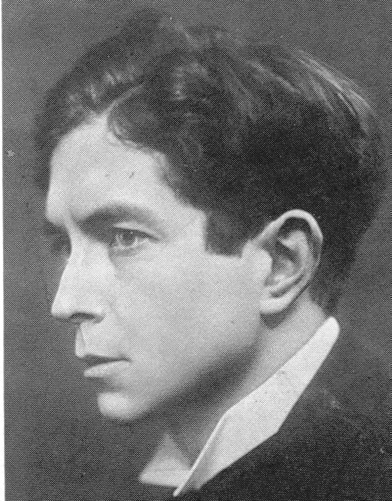
This article has grown out of the entry in the T.H.S. Bulletin for 2003, entitled: Our Tommies are always Cheerful. In this, we met two of these ‘Gloucestershire Friends’, who had grown up in the same area, and served with the 5th Glosters on the battlefields of World War I. They were W. H. (Will) Harvey (1888-1957), poet and later solicitor in the Forest of Dean, and Ivor Gurney (1890-1937), poet and composer. This article, however, adds a third friend from Lydney, the composer Herbert Howells (1892-1983). The title is taken from a book of poems called Gloucestershire Friends, written by Harvey while a prisoner-of-war in Germany. Howells did not serve in the army because of his very poor state of health in 1915, but the three kept in touch.
This article does not claim to be new research but will examine places in this area which they loved and which formed an influential part in the lives and work of these talented friends. Selection of extracts from the friends’ written work and comments on their significance are mostly original. In the churchyard at Twigworth, on the A38 road which links Tewkesbury and Gloucester, are the graves of Ivor Gurney, who died in 1937, and of Herbert Howells’s son Michael, who died of polio, aged nine, in 1935. This is just one of the facts which link these three talented men. They were also part of a network of poets and musicians in north-west Gloucestershire, whose works were flourishing by the Great War . Born the son of a tailor, Gurney and his family lived in Queen Street, Gloucester, although they lived at Longford in later days. It is not far from ‘Chosen Hill’which was a favourite area for all of them. Harvey grew up not far away, in ‘The Redlands’, at Minsterworth, the villagewhere people now view the Severn Bore.The Malverns
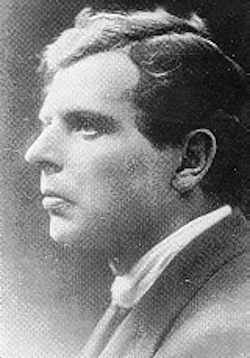
Gurney said to Howells one day, “Look at that outline…unless it influences you for the whole of your life in tune-making, it is failing in one of its chief essentials.”
After the war (1919-20), Gurney wrote a poem called The Touchstone-Watching Malvern: “What Malvern is, the day is, and its touchstone, Grey velvet, or moon-marked; rich, or bare as bone; One looks towards Malvern and is made one with the whole;…”
The deep and abiding love of the Gloucestershire countryside was by far the most powerful influence on the young Ivor Gurney and Herbert Howells. Like Gustav Holst and Vaughan Williams, the two musicians went on long walks in that countryside, as did Harvey, who also shared boating on the Severn with Gurney. When Harvey was mistakenly reported as presumed killed in action, Gurney wrote a moving poem called To His Love. Gurney’s knowledge of death on the battlefield was real enough and the shattered corpses he had seen were no less dear:“He’s gone, and all our plans
Are useless indeed.
We’ll walk no more on Cotswold
Where the sheep feed
Quietly and take no heed….”
“On Severn River, under the blue
Driving our small boat through.”
…
“Cover him over with violets of pride
Purple from Severn side.”
The City of Gloucester
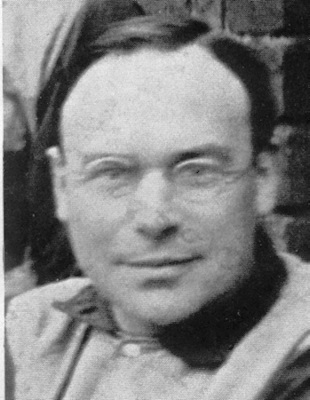
Ivor Gurney and Herbert Howells came from relatively humble backgrounds, and would not have enjoyed grammar school education without the system of scholarships. Fortunately, because of their ability, Gurney was able to attend the King’s School in Gloucester and Howells Lydney Grammar School. Howells showed his musical talent while still at school and either produced or adapted music for school plays and worship. The local Bathurst family paid for him to have weekly piano lessons. He later became an articled pupil with Dr Brewer, the organist at the Cathedral. Gurney also studied under Dr Brewer, and both boys were choristers at Gloucester Cathedral.
Will Harvey’s family was more affluent, living in a country house, Redlands at Minsterworth, rearing shire horses and able to afford private education. Harvey had a governess, who taught him to love poetry, but then, from 1897 to 1902, he attended the King’s School in Gloucester, where he formed a life-long friendship with Ivor Gurney. He loved sport, music and the Gloucestershire countryside. From 1902 he was sent to ‘Rossall’, a boarding school, near Fleetwood.
It was musical talent which brought Gurney and Harvey into further education. They both attended the Royal College of Music in London, thanks both to the Open Scholarship system and also to the encouragement and subsidies from Gurney’s godfather, Rev. Alfred Cheeseman of Twigworth. However, it was in the City of Gloucester – and especially in the musical life of the Cathedral – that introduced them.
Friendships were made and the history of the city, with its Roman foundation of ‘Glevum’, entered their consciousness deeply. As Gurney wrote in the poem at the start of this article: “Yet walking Gloucester history seems a living thing and an intense”.
Choir Stalls
Those who, without being members of the choir of Tewkesbury Abbey, have had the privilege of being able to sit in the back of the choir stalls during performances and choral services, will appreciate something of the great impact which singing in the choir stalls of Gloucester Cathedral regularly would have had on young Gurney and Howells. There is a great sense of immediacy, of intimacy with the past, which is aroused by such close proximity to the medieval stonework, stained glass surroundings and carved woodwork with misericords. The great organs nearby send vibrations into the seats and the air and the soaring ceilings seem to reach up to heaven.[2]
The influence of this stage in their lives is shown in a poem by Gurney, written 1917-1919. Apart from showing the liturgy to be built into his soul from those days, it is the very epitome of his great enthusiasm and joy. Part of it reads:
“…..There
was such beauty in the dappled valley
As hurt the
sight, as stabbed the heart to tears,,,,,,
…………..no beast, no clod so dull
But power felt
of the day, and of the giver
Was glad for life, humble and proud
Kyrie, Eleison,, and Gloria,
Jubilate and Magnificat;
The whole
world gathered strength to praise the day”
In the 1940s Howells moved on from his orchestral works, for which he had become well-known, and started to compose his major works of church music. By the 1950s, his style in these became famous. He had been creating a major work called Hymnus Paradisi and, when he showed it to Vaughan Williams and Herbert Sumsion (an old friend of Howells at Gloucester Cathedral, who was a leading figure in English church music), they encouraged him to make it available for the 1950 Festival. Thus it was performed for the first time in Gloucester Cathedral. It had a tremendous impact and it was perhaps fitting that the building, which had inspired Howells and Gurney so much in their young formative years, now saw the climax of Howells’ church music. Reviewers pointed out the special effect of the acoustics of Gloucester Cathedral, which conveyed superbly the atmosphere.
Will Harvey was also very fond of music, and joined the Three Choirs Festival in younger days. He had a very good baritone voice and sang in amateur productions of Gilbert and Sullivan’s operettas. The collaboration of the three friends bore fruit: Harvey set some of Gurney’s poems to music while Howells set Harvey’s words to music.
Tewkesbury
Tewkesbury Abbey had become a well-loved centre for choral music. It was here that Herbert Howells made his last attendance at a live performance of Hymnus Paradisi, in June 1980. The town of Tewkesbury, but notably the sight of the Abbey tower, was precious to Gurney and friends on walks from Gloucester. Gurney’s poem on Tewkesbury, written between 1919 and 1922, is not one of his most noteworthy, but reveals his appreciation.“Some Dane looking out from the water-settlements
If settlements there were, must have thought
as I,
Square stone should fill that bit of lower
sky……….
Forthampton walking, thinking and looking to
Tewkesbury,
Where a cricketer was born and a battle
raged desperate,
And mustard grew, and Stratford boys early
or late
May have come, and rivers, green Avon, brown
Severn, meet,
And Norman Milo set a seal on the plain…….”.
Minsterworth
The Redlands and the area on the Severn near Minsterworth, four miles from Gloucester, with its view of the Cathedral, became well-known to Gurney who visited Harvey and family there. Frances Townsend, in her book about Harvey, Gloucestershire Laureate, quotes letters, dated in 1915, from Ivor Gurney to Miss Marian Scott, his mentor from the Royal College of Music:
“Willy Harvey, my best friend, went out on patrol a week ago, and never came back….nothing can alter my memory of him or the evenings we spent together at Minsterworth. My thoughts of Bach and of all firelit frosty evenings will be full of him, and the perfectest evening of Autumn will but recall him more vividly to my memory.”
It was known later that Harvey had just been taken to a P.O.W. camp in Germany. As we shall see, the days would come, in the 1920s, when Harvey would be writing to her with anguish about the fate of Gurney…. After the war Harvey wrote fondly about Minsterworth and the Severn Bore there, in a collection called A Forest Offering.“I love old Minsterworth. I love the river/Where elver fishers bend with twinkling lights/And salmon catchers spend their fruitful nights….”
World War I
By 1912 Harvey had already been known, like Gurney, to the poets whose circle of friends became known as the Dymock Poets. They both knew Edward Thomas, Rupert Brooke and others. During the war, however, Harvey was to become better known, because of his bravery for which he was awarded the D.C.M.,[3] and for the poems which appeared in the 5th Gloster Gazette. In 1915, Sidgwick and Jackson published a book of his wartime poetry, entitled A Gloucestershire Lad.
Lydney
Herbert Howells did not serve in the armed forces like his two friends because, in 1915, he became seriously ill and was given only six months to live. He stayed in Lydney, where his mother could look after him, and travelled to London for medical treatments. It is ironic that he far outlived the others. His eyes gave great concern and he was exhausted. It was caused by a type of heart trouble and was diagnosed as Grave’s Disease. He was only 23: it looked as though his great promise as a composer would never be fulfilled. However, he was used as a ‘human guinea-pig’ over two years and became the first human being to be given radium treatment.
He continued to work at his music and spent time also at ‘Glengarriff’, Churchdown, where his friend, the singer Dorothy Dawes lived. (They married in 1920). In June 1916 he completed a major work: a Piano Quartet in A minor. It was dedicated to “The hill at Chosen and Ivor Gurney who knows it”. He had been greatly encouraged by the composer Hubert Parry. His recovery from illness was slow but, in the end, successful.
The friends kept in touch during the war, which Harvey and Gurney survived, while Howells gradually gained strength and worked hard at his music, in which he gained an increasing reputation.[4]
The letters of Private 3895 Ivor Gurney, are of much interest. In one, to Marian Scott, in 1916, he describes being with a group of Welsh soldiers, finding their comradeship marvellous: they had much in common.
“These few days in the signal dugout with my Cymric friends are of the happiest for years….They talk their native language and sing their own folksongs with sweet natural voices…. These Welsh God makes fine natural gentlemen”.
If he could have met up with David Jones, the London-Welsh poet and artist, whose amazing poetical – but nonetheless highly realistic – account of life in the trenches and battlefields, In Parenthesis, was published by Faber and Faber in 1937 with the encouragement of T. S. Eliot. What a meeting of minds that would have been!
Some of Gurney’s poems about battle and “servitude” in the Company, the necessary use of bad language among the Privates (as Jones adroitly put it, “the efficacious word”), making oneself as invisible as possible by hugging the ground, for example, are extended in Jones’ work. Both emphasise the great comradeship of the ordinary soldier, although Jones commented that, after 1916, one hardly had a chance to get to know others before they were killed.P.O.W. Camps at Gutersloh and Holzminden
Harvey had been the mainstay of the 5th Gloster Gazette in its early days; he was an eloquent speaker and writer of prose as well as poetry. In P.O.W. camp he was much in demand, as he could write, sing and play sports. He made an effort to fight “the green mould of the mind” and maintain a free spirit. He continued to write poems.
Perhaps his most well-known, Ducks, became a standard in anthologies of poetry in later years. A friend had done a drawing of ducks in their sleeping quarters, and it inspired Harvey to write during a spell of solitary confinement. “From troubles of this world I turn to ducks…”.
Later he wrote a prose work, Comrades in Captivity, about his experiences. His escape attempts are described in Soldier-Poet, his biography by Anthony Boden.
The post-war years - Framilode
After the war, Gurney returned for a while to the R. C. M. in London, but paid frequent visits home, sometimes walking back to Gloucester, or sleeping out on the Embankment. He was suffering from increasing mental instability. A volume of poems was published from the years 1919-1922. In one of these poems, he describes a place that was very dear to him and his friends. The lock-keeper’s house at Framilode was a place of refuge when he felt tense and anxious.
Gurney admired the lock-keeper very much and a lengthy poem, The Lock-Keeper, lists all the man’s many country skills. There was obviously plenty of time to do these in addition to operating the lock. “There was nothing he did not know; there was nothing, nothing”, wrote Gurney, in the 1919-22 collection. He praised his “Knowledge transcending books … The nights of winter netting birds in hedges; the stalking of wild-duck by down-river sedges; and wisdom of Fish running, tide running, plant learning and bird flight”.
Framilode is still a very special place. Down on the Severn-side path the magical sight of the sea and wading birds gathering on the estuary flats to probe for food; their flight, perhaps against a sunset, and the views over to the Forest of Dean, make it still a place to fire the imagination. No wonder that Gurney and Howells, as young lads, sometimes abandoned school to explore it.
Barnwood House
The connection with this place was not a happy one like that of Framilode. It was a private mental hospital. A former Longlevens resident recalls that local people referred to other mental hospitals as “the loony bin”. Barnwood House, however, was accorded its proper title. In August 1922, friends of Gurney, like Will Harvey in particular, were greatly saddened when he was admitted. They knew that to be confined behind four walls was torture for him; they knew his passion for long walks and the open air.
From P.J. Kavanagh’s biography, we learn that in December 1922, Gurney was moved to The City of London Mental Hospital at Dartford in Kent. He never saw Gloucestershire again. He turned in imagination to the France and Gloucestershire of his past but continued to write many poems and much music – mostly until 1926 – along with some writing until 1933. He died of tuberculosis in 1937.
An examination of his work gives insight into his feelings. One year alone saw him compose fifty songs. At times, however, he was very conscious of his plight, and in some poems he pleaded to be allowed to die. He wished he could come under fire again on the battlefield and become one of the fatal casualties: “Oh for France! For France!”. In The Last of the Book he wrote: “There is nothing for me, Poetry, who was the child of joy/But to work out in verse crazes of my untold pain.”. In Betrayal we read, “God is so absent,”. At times music would help: From Bach, Under Torment…..“Oh will not Gloucester, nor Aubers, nor Ypres save?…..O Bach, O Father of all makers, look from your hidden Hold where you are now and help me that ant so hard hurten.” He had delusions of being persecuted by ‘electricity’ and had unusual eating and fasting habits, perhaps obsessive and signs of mental disturbance, which gave him stomach problems also.It is not clear whether Gurney’s condition was the result of shell-shock or gas, as his discharge from the Army mentioned. As a friend had commented, the line between genius and madness is sometimes a fine one. Certainly his enthusiasms and joys were stronger than those of the average person, to judge by his letters and poems – and so his despairs and fears were also intense. He never married, although – typically – while recovering in an Edinburgh hospital from the effect of a gas attack after Passchendaele, in 1917, he developed a ‘crush’ on his V.A.D. nurse, Annie Drummond. He was not the first to be ‘smitten’ by a kind nurse at such a time. Gurney’s attachment was not reciprocated seriously by her.
Yet he produced many fine works after entering mental hospital. Friends such as Marian Scott kept in touch, as did some he had not actually met, like Gerald and Joy Finzi. They helped to have his work published. Will Harvey wrote a moving poem dedicated to Gurney.
“This hawthorn hedge will bank its snow
Spring after Spring……
But you
within the madhouse wall
But you and 1 who went so free,
Never shall keep Spring’s festival
Again, though burgeon every tree
With blossom joyously.”
The Old School House, Yorkley
After World War I, Will Harvey practised as a solicitor in the Forest of Dean, which he loved. From 1927 he settled at Yorkley, and ran his practice from home in the 1930s. In April 1921, he had married an Irish nurse, Anne Kane, having a son and daughter. There was much hardship and ill health in the Forest of Dean in the 1920s and 30s and Harvey tried to help the community in which he lived. He encouraged music and sport, often not charging poor men for his professional services. He became known for eloquent defence of such people in court, often with a sense of humour. He always kept a great affection for the beauty of nature in his area and continued to write poetry.
In common with other ex-soldiers, he became disillusioned with the failings of the ‘peace’ after the war. In 1919 he had written,
“A comradeship of ghastly experience knits up all classes. Now is the time to reconstruct, to fashion a New England. …Peace has never seized the national imagination as war has done. Peace was not spoken of as ‘the Great Adventure’. For Peace we never poured out blood and gold like water. Art, housing, education, science, employment, have never received endowment of x million…”
About his later years, Frances Townsend writes: “He became a familiar figure in his old trilby and shabby suit walking to catch a train or bus in Lydney”. However, his eloquence in court became legendary. He used to drink with locals in the Forest pubs, never seeking wealth or social status. In World War II, he volunteered for the Home Guard, was President of the local branch of the British Legion. As time wore on, he had financial difficulties and became unwell. He still took part in Arts in the area such as reading his poems and writing about musical events for a local newspaper. He died in 1957 and received glowing obituaries. His last words were “I am burnt out to the glory of Gloucestershire”
So the three friends left a legacy of achievement which ensured that the concept of ‘Gloucestershire’ became written into the national heritage and consciousness in a very special way.
References
- T.H.S. Bulletin No. 12 (2003) pp22-23.
- The Gloucester choir stalls had been largely restored in 1873 by Sir Gilbert Scott, although much of the ancient woodwork was retained.
- T.H.S. Bulletin No.12 (2003) p.22-23. ‘Distinguished Conduct Medal’.
- Biography of Herbert Howells by Paul Spicer.
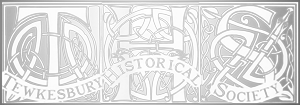
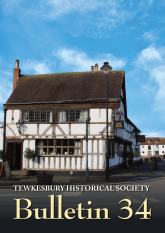
Comments